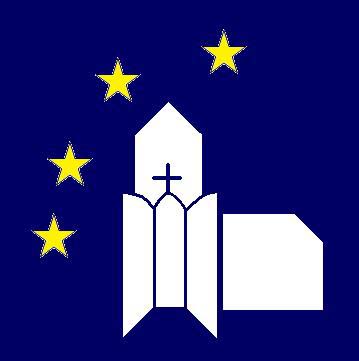Kindly click on Digital Education Webinar to read these extensive and interesting minutes. You can find the French version on our website and I have prepared a brief summary in Spanish, which is this text.
Since Spanish is not an official language of the Council of Europe, when I upload documents of the Conference of INGOs I try to make a summary for EN-RE readers and it's easier for me to write in English, my native language, although I have lived permanently in Spain since 1963.
The information given by the speakers William Acker and Henri Braun in these Minutes concerns hate speech and official administrative persecution or indifference in France towards "Travellers" known as GDVs (an French abbreviation for Gens du Voyage), a Romani people, which, according to Wikipedia, emigrated in the late Middle Ages from the Punjab/Sind in what is now Pakistan westwards to Egypt, Persia and Asia Minor where they are known as Doms, to Central Europe where they are called Roms, to France, Italy and the Baltic where they are called Sinté-Manouches and Iberia where they are known as Gitanos. These Romani people suffered persecution generally for centuries due to their lack of a fixed domicile and especially from the Nazis.
William and Henri describe how GDVs in France are excluded from basic human rights because
they do not conform to the uniformity required by the French Republic. They are considered foreigners although their families have lived in France for many generations, their children have difficulty in obtaining schooling, they are forced to camp in insalubrious locations, their life expectancy is shorter, politicians are surprised when they meet William who has their same level of education and even the administrative departments which legislate the living conditions of GDVs take decisions regarding them without consulting a single GDV.
This led me to suggest to the Education and Culture Committee that William should invoke the Code of Good Practice for Civil Participation in the Decision Making Process and its Template for Case Studies which you can download from the bottom of the page under An experience you want to share. The revised Code and its Template were adopted by the Conference of INGOs on 30th October 2019 and by the Congress of Local and Regional Authorities, the following day.
I have begun to check the situation of Travellers amongst the Spanish population of Romanis (Gitanos). I refer you to an article published in El País on 10th October 2018 entitled La realidad el pueblo gitano en cifras (The current situation of the Gitano Romani People in statistics). I translate the first paragraph as follows: "In the past they lived in communities, were nomadic and spoke their own language. Today their reality is completely different. 750,000 people in Spain are Romanis, the equivalent of the population of the city of Valencia. Ninety-five percent of Romani children are in school, but only 2% reach university. 10,000 Romanis in Spain live in slums, but they are 70% fewer than 27 years ago. The Romani people have evolved in 30 years in our country more than in six centuries..."
Translated with www.DeepL.com/Translator (free version)
There is a lot more interesting information in these Minutes of the Webinar of the Education and Culture Committee which I do not have the time, at present, to summarise. But, Dear Reader, if you would like to do this and send it to me at
